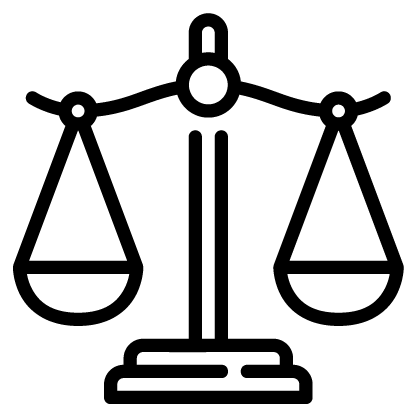Academic integrity: what it is and how to avoid a breach
This article explains what academic integrity is, and includes useful information for avoiding academic integrity breaches.
The University expects you to act honestly and ethically during your candidature. This includes when you are researching, writing and completing assessment tasks, and when you are taking an exam. The University takes academic integrity very seriously. If you are suspected of cheating in your academic work, you will be investigated and may receive penalties.
New students need to complete the Academic Honesty Education Module (AHEM) available on Canvas. This module will help you understand the standards of academic integrity expected of you.
Other resources to help you understand academic integrity include:
- the Learning Hub (Academic Language and Learning)
- the Learning Hub (Mathematics)
- the Library’s guides to referencing and citation styles.
Coursework students can also access writing and referencing feedback on a draft, and connect with a specialist in their subject using Studiosity, available any time.
Breaches of academic integrity
An academic integrity breach includes plagiarism, recycling, academic dishonesty and cheating, as defined by the University. A student might breach academic integrity requirements accidentally, or they may intentionally do something dishonest or unfair to gain an academic advantage.
Common breaches of academic integrity include:
- plagiarism
- recycling or resubmitting work from previous assessments
- using fake or false research data
- collusion or illegitimate cooperation
- cheating during an exam
- contract cheating – when someone else writes or contributes to your assessment
- use of generative artificial intelligence (AI) or writing tools.
The most serious breaches of academic integrity can be considered academic misconduct. Academic misconduct investigations can lead to heavy penalties that include suspension or exclusion from your degree. If you receive an allegation of academic misconduct, you should contact us immediately, before you respond to the University.
How to maintain good academic integrity
Developing good study habits can help reduce errors in the academic work you submit.
Take good notes: always keep your own thoughts and ideas separate from the ideas presented in the materials you are studying. This will help you clearly understand when you return to your notes what your original ideas are, and what ideas you need to reference. Poor note taking can easily lead to an accusation of plagiarism.
Use appropriate research tools: it is best to not rely only on Google, Baidu or Youtube for your academic research. The University’s academic liaison librarians can help with ideas for scholarly search engines.
Manage your time: don’t leave researching, editing and referencing to the last minute. Make sure you have enough time to conduct your academic research and properly check your references before submitting.
Understand your role in group work: navigating academic integrity in group work can be challenging, especially when students prepare different parts of an assessment separately. If an academic integrity breach is suspected, the whole group will receive allegations, even if only one student was directly responsible. When doing group work, you should:
- Decide on processes for checking the quality of sources and cross-checking all references.
- Keep a record of how you made decisions as a group and how tasks were allocated.
- Keep draft copies of your contributions to the group work.
Learn to paraphrase properly: get expert help early in your course. Learning how to paraphrase appropriately takes time, patience, and practice. If you are unclear on how to paraphrase well, get advice from your unit coordinator, academic learning advisors, the Learning Hub or the academic liaison librarians.
Improve your academic English skills: do not rely on Google Translate to change drafts that are written in another language into English. Using Google Translate too much can lead to a high similarity index in the Turnitin similarity report, meaning you will face an allegation of an academic integrity breach. If you need to improve your written English, seek assistance from the Learning Hub. You can also practice conversational English skills with the University Library’s peer learning advisors. The Library has online guides to help you understand referencing and citation styles.
How to avoid plagiarism
Plagiarism means presenting work that is not your own without acknowledging the original source of the work. Plagiarism is something that can be done on purpose or accidentally and can include copying any material without correct referencing.
The most common types of plagiarism are:
- copying another person’s work and presenting it as your own
- failing to reference another author’s work properly
- poorly paraphrasing another author’s text and then failing to properly reference that work.
Sometimes a student may unintentionally plagiarise as they don’t understand referencing requirements. It’s important to understand the University takes all forms of plagiarism seriously.
How plagiarism is detected
The University detects possible plagiarism in 2 ways:
- The person marking an assessment will sometimes notice plagiarism.
- Software, such as Turnitin, is used to detect similarities.
Turnitin is text-matching software that compares similarities between an assessment and millions of other assessments, academic journal articles, web pages and other texts. Turnitin generates ‘similarity reports’ that can trigger an allegation or be used as evidence of plagiarism.
Markers and examiners are required to report suspected plagiarism.
Top tips for avoiding plagiarism:
- Learn to reference according to the requirements of your faculty, school, or department.
- Complete any training provided by your faculty on how to reference properly, or attend a Learning Hub (Academic Language and Learning) workshop. The Using evidence and Avoiding Plagiarism modules can help you understand quoting, paraphrasing and summarising, and learn strategies for avoiding plagiarism.
- Read relevant style guides, course handbooks and your unit outlines.
- Complete the Academic Honesty in Education Module (AHEM), available on Canvas.
- Develop your skills in quoting, summarising and paraphrasing using the Write Site.
If in doubt, talk with your lecturer, unit coordinator, or academic advisers within your faculty.
How to avoid contract cheating
When another person writes or contributes to your assessment, this is known as contract cheating. If you write or contribute to another student’s assessment, or help another student by giving them your assignment to copy and submit as their own work, this is also contract cheating.
Contract cheating is academic misconduct and is something the University takes very seriously.
Contract cheating includes:
- When you use a commercial service or business (even if you do not pay).
- When a friend, family member or fellow student contributes too much to your work.
Never get someone else to do your University work for you.
Contract cheating businesses
Do not use commercial services or businesses that offer:
- tutoring in a specific Usyd assessment task
- ghostwriting (someone writing your assessment for you)
- plagiarism checking
- file sharing (for example, sharing of study notes).
Avoid tutoring businesses that are:
- not approved by senior members of your faculty
- advertised on WeChat
- offering courses in languages other than English.
It is likely that these businesses have copied or re-used the work of past students, which will lead to a high similarity index in the Turnitin similarity report when you submit your assignment. Tutoring businesses which give students the answers to an assessment task do not provide an ethical learning experience.
These businesses can put you at risk. Contract cheating services can also have very poor data security, and some of them have used students’ personal details inappropriately, posing a security risk to you and the University. Be suspicious of services that are only promoted by other students or student societies. Avoid commercial services that are not approved by or affiliated with the University, and always check with your faculty.
Be careful of sharing documents such as unit of study outlines and lecture slides on platforms like Course Hero. These documents are the intellectual property of the University. Sharing these with external parties could lead to an allegation of academic dishonesty or academic misconduct.
Don’t ask for help from friends and family
Never ask a friend or family member to contribute to or complete your individual assessment for you. Never complete work for another student, or give them your assessment task even if you are finished with that subject. Students might exchange ideas but if this results in similar wording and ideas in your submitted assessments, you will be investigated for academic integrity breaches. Changing words or phrases is not enough to disguise collaboration.
Read the University’s advice on contract cheating.
Get assistance
Contact us, our caseworkers can help you with any questions about academic integrity.
The Learning Hub (Academic Language and Learning) and Learning Hub (Mathematics) have resources andworkshops, and can give advice on academic integrity. The Library has guides to referencing and citation styles.
Policy
Check the University policy register, in particular:
Academic Integrity Policy 2022 and Academic Integrity Procedures 2022
- Describe the principles underpinning the University’s approach to academic integrity, and expectations of students to promote these.
- Outline the University’s process for handling allegations of academic integrity breaches by students enrolled in coursework award courses.
- Describes the University’s understanding of good research practice and expectations of researchers.
- Outlines the University’s process for dealing with cases of academic dishonesty and misconduct related to research.
University of Sydney (Student Discipline) Rule 2016
- Governs the management of misconduct matters related to current and former students, where the alleged misconduct occurred when the student was enrolled at the University.
- Outlines penalties for misconduct and the University’s disciplinary process.
- Sets out the mutual expectations between students and the University to create a productive and safe environment for learning.
Academic Integrity Decision-making and Penalty Guidelines 2023
- Provide a guide for Educational Integrity Coordinators (and other academics nominated by a dean) to determine allegations of academic integrity breaches for coursework students.
Download this article as a Word document
Download this article as a PDF
Written by SUPRA Postgraduate Advocacy Service June 2023
Need help?
Our casework and legal services are here for you.

Postgraduate Advocacy Service
Our caseworkers can help with any problems you face while you study at Usyd, from academic appeals to renting.


Stay in touch with us